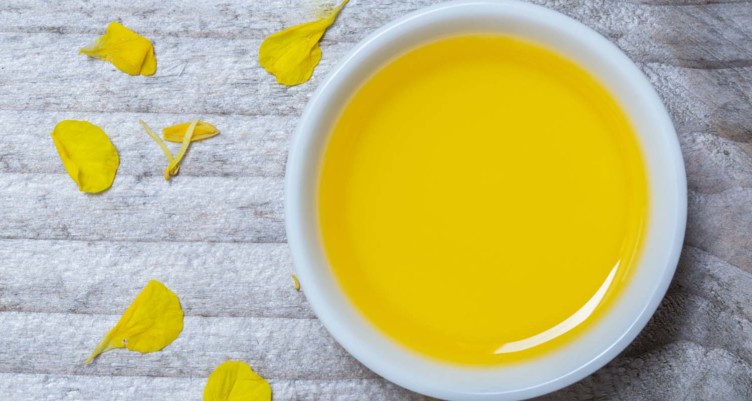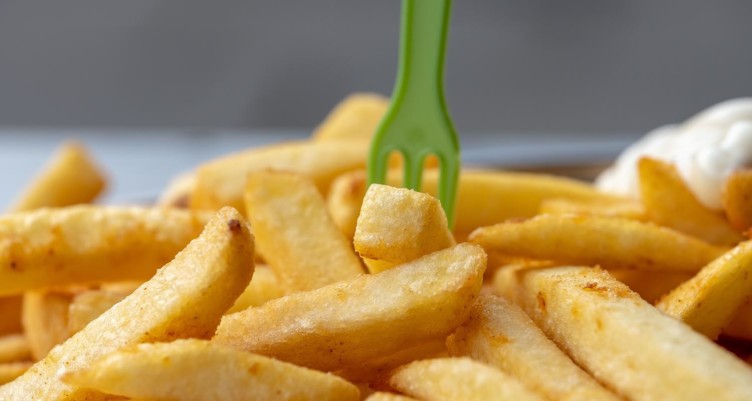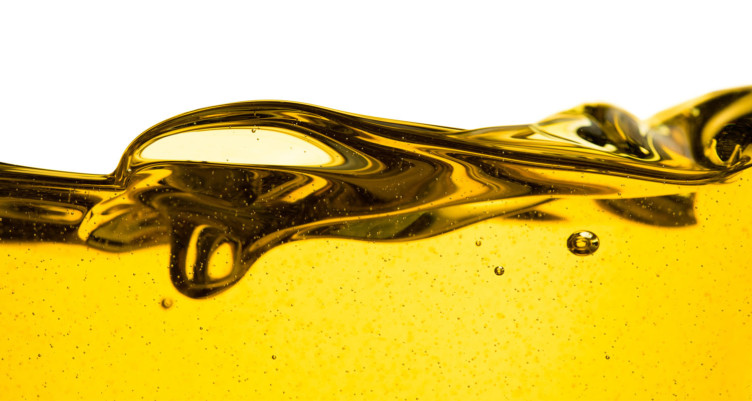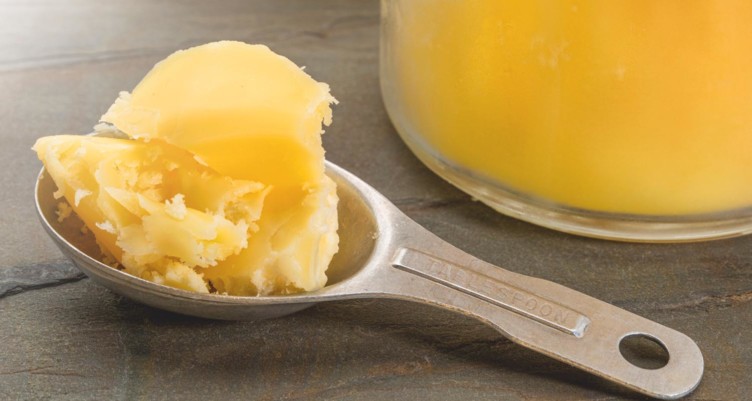What You Need to Know About Canola Oil and Its Substitutes

- Canola oil’s high smoke point and affordability make it popular, but its production raises health concerns, including GMOs, trans fats and inflammatory omega-6s.
- Choosing between canola oil vs vegetable oil shows that while both have high smoke points, canola’s potential health risks make alternatives more appealing.
- Healthier alternatives to canola oil include options like avocado oil, ghee and extra virgin olive oil.
Is canola oil bad for you? Nutritionists and food experts have debated this question since the 1970s, when canola oil began replacing rapeseed oil. But what exactly is canola oil and does it support your health?
Here’s what to know about canola oil and some healthier alternatives for your kitchen, from MCT oil in dressings to ghee for sautéing.
What is Canola Oil?

Canola oil is a neutral-flavored vegetable oil with a high smoke point (400°F). It’s a popular, affordable choice in restaurant kitchens and as a salad dressing ingredient.
Let’s start with its history as a cooking oil to understand canola oil.
The History of Canola Oil
Canola oil comes from the canola plant, created by scientists in the 1970s in response to stricter regulations on rapeseed oil.
At the time, rapeseed oil contained high levels of erucic acid, an omega-9 fatty acid linked to heart muscle damage in animal studies.[1] It was also high in glucosinolates, antinutrients that can block iodine absorption.
Seeing these concerns, Canadian researchers cross-bred rapeseed plants to lower glucosinolates[2] and erucic acid levels. The result was LEAR (low-erucic-acid rapeseed) oil, later branded as canola to honor its Canadian origins (“Can” for Canada, “ola” for oil).[3]
As saturated fats fell out of favor, low-saturated-fat oils like canola gained popularity as “heart-healthy” choices. This shift drove canola oil’s growing demand.
Related: Everything You Know About Cholesterol Is Wrong
Canola Oil Facts and Concerns

Canola oil growing and processing methods raise essential public health questions. From GMOs and pesticides to chemical solvents and trans fats, canola oil production sparks significant concerns.
GMOs and Pesticides

As canola production became more popular, farmers needed ways to protect crops. In 1995, Monsanto developed Roundup-Ready canola, a bioengineered crop that could withstand glyphosate, the active ingredient in the weedkiller Roundup[4] This allowed widespread glyphosate use on canola crops without damaging the plants.
Today, the EPA sets maximum glyphosate residue levels for many foods.[5] However, the EPA hasn’t set tolerance levels specifically for canola oil, as glyphosate doesn’t significantly concentrate in the seeds used for oil.[6] Still, small amounts of residue may remain in the final product.[7]
Why does this matter? Researchers link high glyphosate exposure to potential health issues, including hormone disruption and changes to the gut microbiome.[8] To reduce glyphosate intake, cutting out foods like wheat, oats, corn and vegetable oils—including canola oil—can help limit exposure.
Chemical Solvents

Most commercial canola oil undergoes hexane solvent extraction, the most cost-effective way to extract the oil.[9] This process grinds seeds into a paste, then uses hexane to pull out the oil. The oil is then heated to 212°F and bleached for a lighter color.
However, these processing steps can damage the oils, raising levels of oxidation and trans fats.[10] Oxidation, a natural chemical reaction, produces free radicals—molecules that may lead to inflammation and cellular damage when they accumulate.[11]
Are you wondering about trans fats? Here’s why they don’t belong in your diet.
Trans Fats

Experts link artificial trans fats in processed foods to numerous health risks, including obesity and heart conditions.[12]
Refined vegetable oils, including canola, undergo processing to become stable and neutral, but this process also creates trans fats.[13] While vegetable oils contain lower levels of trans fats than products like margarine, trace amounts may still end up in the final product—even if the label says otherwise.
In 2003, the FDA mandated listing trans-fat amounts on food labels, but manufacturers can still claim 0% trans fat if foods contain less than 0.5 grams per serving.[14] This means that consuming multiple servings of vegetable oils in packaged foods, processed snacks, or restaurant meals can lead to significant trans fat intake over time.
Is Canola Oil Bad for You?

Canola oil seems healthy on paper, with a balanced omega fatty acid ratio and a high smoke point for cooking. Yet, despite these qualities, concerns about its production and health effects make it a questionable choice for your kitchen. Here’s why we don’t recommend using it.
High in Omega-6s

Canola oil offers a good omega-6 to omega-3 ratio of 2:1. Research links this balance to better health.[15] Ideally, foods should maintain an omega-6 to omega-3 ratio close to 4:1 or lower.
However, there’s a catch: The omega-3 in canola oil is short-chain alpha-linolenic acid (ALA), which your body must convert to long-chain fatty acids (EPA and DHA) to gain full omega benefits. Studies show that only a small percentage of ALA converts to EPA and DHA, meaning the true omega-3 levels in canola oil fall short of advertised.[16]
In reality, canola oil provides less omega-3 than it seems—a critical factor to consider if you aim to support a healthy omega balance.
Inflammation

Vegetable oils like canola and soybean oil contain high omega-6 fatty acids. While omega-6s support essential functions like brain health and muscle growth, excess intake can lead to inflammation and oxidative stress.[17]
The challenge is that omega-6s are everywhere in the Western diet due to the widespread use of vegetable oils.[18] Although inflammation is a normal immune response, chronic inflammation can harm your health over time.
For example, one study found that high levels of the vitamin E type found in canola oil correlated with a 10-17% reduction in lung function due to inflammation.[19] Cutting out vegetable oils like canola removes a common source of inflammation—making it a straightforward step toward better health.
Best Canola Oil Substitutes

Today’s shelves offer a variety of oils, from vegetable oil blends to high-oleic sunflower oil. Choosing the best canola oil substitute depends on your cooking method, taste preference and health concerns.
Here are standard terms you should know to better understand oil:
- Non-GMO: Produced without genetic modification, avoiding health and environmental concerns.
- High-oleic oil: Rich in monounsaturated fats, stable at high temperatures and less prone to oxidation. Bulletproof uses high-oleic sunflower and safflower oils that meet strict oxidation standards.
- Cold-pressed: Extracted without chemicals, producing pure, high-quality oils.
- Expeller-pressed: The process presses oil without chemicals, but pressure generates some heat.
- Refined vs. Unrefined: Refined oils are neutral and have a higher smoke point. Unrefined oils, like extra virgin olive oil, retain more nutrients. Is canola oil better than olive oil? While both are popular, olive oil—especially extra virgin—undergoes minimal processing, retains more nutrients, and offers well-documented health benefits compared to canola oil.[20]
- Smoke point: The temperature at which oil breaks down, releasing free radicals and altering flavor.
With these terms in mind, let’s look at the best oils for cooking based on nutrition, stability and versatility.
Best Oils for Cooking

When choosing oils, consider overall nutrition, availability and how well they suit your cooking needs. While not exhaustive, this guide is a good starting point for making informed decisions on which oils to use.
- Medium to High Heat (e.g., roasting, sautéing):
- Ghee (grass-fed)
- Grass-fed beef tallow
- Avocado oil
The best oils for high-heat Cooking.
- Low to medium heat recipes (ex: baking, slow-cooking):
- Grass-fed butter
- Coconut oil
- Olive oil (not extra virgin)
The best oils for no—head or low-heat cooking:
- Low heat or no heat recipes (ex: salad dressings, finishing oils)
- MCT oil, like Bulletproof Brain Octane C8 MCT Oil
- Extra virgin olive oil
- Nut oils (pumpkin seed, walnut)
Finding the suitable oils can make a big difference in taste and health. While canola oil is easy to find and use, its potential risks make other options worth considering.
Read next: Is Fat Good for You? Everything You Need to Know About Dietary Fats
Sign up for early access to sales, product launches, the latest Bulletproof news and more!
This article has been updated with new content.



